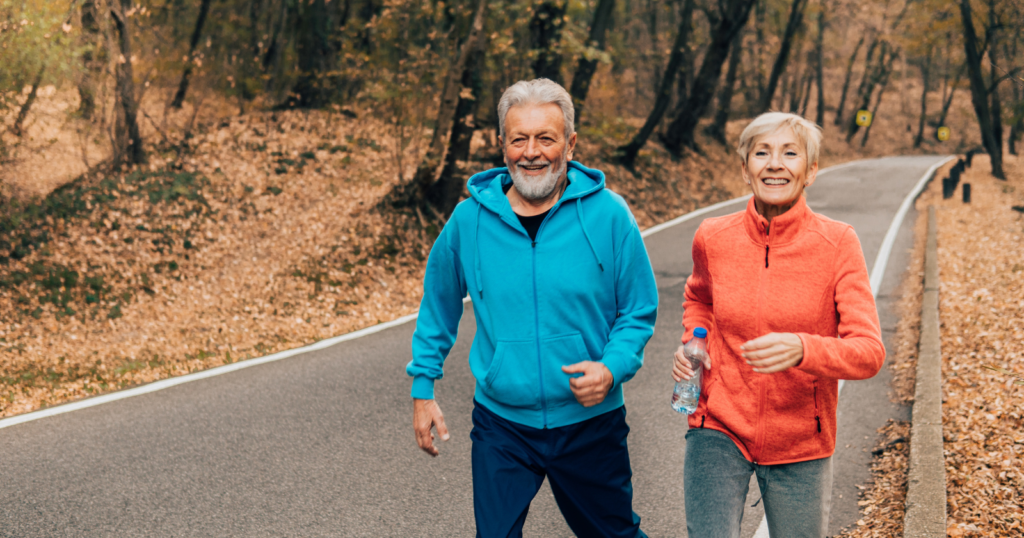Ever notice how some people seem to have discovered the fountain of youth? I’m not talking about expensive creams or surgical procedures—I’m talking about folks who genuinely radiate more energy in their 70s than they did decades earlier.
As someone who’s been around the block a few times, I’ve had the privilege of observing what sets these vibrant individuals apart.
It’s not luck, and it’s certainly not genetics alone.
These people have stumbled upon—or deliberately adopted—certain principles that keep their inner fire burning bright.
What’s fascinating is that many of these energetic 70-somethings often claim they feel more alive now than they did in their 20s or 30s.
How is that possible?
Well, it turns out there are some common threads in how they approach life.
The good news?
These aren’t complicated secrets or expensive treatments.
They’re straightforward principles that anyone can start implementing today, regardless of age.
Let me share what I’ve discovered about these eight fundamental approaches to living.
1. They move their bodies consistently, not intensely
Here’s something I’ve noticed: the most energetic older folks aren’t necessarily the ones who were gym fanatics in their youth.
They’re the ones who found ways to move that they actually enjoy.
Researchers have found that older adults who maintain a steady, self-chosen exercise habit—think brisk walks, gardening, or tai chi—score far higher on “subjective vitality,” their day-to-day sense of usable energy.
The key word here is “self-chosen.” These people aren’t forcing themselves through grueling workouts they hate.
Instead, they’re moving a little every day in ways that feel good, which keeps their inner battery topped up well into their 70s.
It’s about consistency over intensity.
2. They cultivate a strong sense of purpose
You know what I’ve observed in my most vibrant older friends?
They all seem to have something that gets them out of bed each morning—something bigger than themselves.
Whether it’s volunteering at the local library, mentoring young people, or finally writing that novel they’ve been thinking about for years, these folks have found their “why.”
This isn’t just feel-good psychology, either.
Researchers discovered that having a strong sense of purpose—volunteering, mentoring, chasing a passion project—predicts faster walking speed and a much lower risk of physical slowdown for up to 16 years.
Feeling needed acts like rocket fuel, keeping older adults spry and energized.
The beautiful thing is that purpose doesn’t have to be grandiose.
Sometimes it’s as simple as being the person who always remembers birthdays or tending to a community garden.
3. They prioritize quality sleep over quantity
This might surprise you, but the most energetic older adults I know aren’t necessarily sleeping more—they’re sleeping better.
I remember chatting with a neighbor who’s 73 and still plays tennis three times a week.
When I asked about her secret, she laughed and said, “I treat my bedtime like a sacred appointment.”
These folks have figured out that good sleep isn’t about hitting the pillow and hoping for the best.
They’ve created rituals: dimming lights an hour before bed, keeping their bedrooms cool, maybe reading a few pages of an actual book instead of scrolling through their phones.
They’ve learned that seven hours of deep, restorative sleep beats nine hours of tossing and turning any day.
And here’s the thing—they don’t stress about the occasional bad night.
They know that consistency matters more than perfection.
Quality trumps quantity every time.
4. They maintain strong social connections
Ever wonder why some people seem to light up when they’re around others, even well into their golden years?
It’s because they’ve invested in relationships like they’re tending a garden.
These energetic folks don’t just have acquaintances—they have genuine connections.
They’re the ones still hosting dinner parties, joining book clubs, or simply making it a point to call their grandchildren every Sunday.
What strikes me most is how intentional they are about this.
They don’t wait for invitations; they create them.
They don’t let geography stop them from staying close to old friends, and they’re not afraid to make new ones.
I’ve seen this firsthand during my walks in the park with Lottie.
The most vibrant older adults are usually the ones stopping to chat with everyone they meet—from fellow dog walkers to young parents pushing strollers.
Loneliness drains energy faster than almost anything else, but connection?
That’s pure fuel.
5. They practice gratitude without making it a chore
Here’s something I’ve learned from watching truly energetic older adults: they’ve mastered the art of appreciating what they have without turning it into homework.
These aren’t people who force themselves to write in gratitude journals every morning (though some might).
Instead, they’ve developed a natural habit of noticing good things as they happen.
A perfect cup of coffee, a funny conversation with a store clerk, the way sunlight hits their kitchen table.
What’s remarkable is how this shifts their entire energy.
Instead of focusing on aches and pains or what they can’t do anymore, they’re genuinely excited about small pleasures that younger people often rush past.
I’ve mentioned this before, but there’s real wisdom in learning to find joy in ordinary moments.
These folks have figured out that gratitude isn’t about being thankful for big things—it’s about being awake to life as it’s actually happening.
6. They embrace learning and curiosity
One thing that consistently amazes me about energetic older adults is their hunger for new experiences.
They haven’t decided they’re “too old” to learn something different.
I know a 78-year-old who just started learning Spanish because she wants to travel to Argentina.
Another friend took up painting at 72 and now sells her work at local markets. These people understand that mental stagnation is energy’s worst enemy.
They read books that challenge them, ask questions that matter, and aren’t embarrassed about being beginners.
There’s something incredibly energizing about approaching life with genuine curiosity rather than the assumption that you’ve seen it all.
The beautiful thing is that learning doesn’t have to be formal.
Sometimes it’s as simple as striking up conversations with people from different generations or trying a new recipe.
The key is keeping that spark of “I wonder what would happen if…” alive.
7. They’ve learned to let go of what they can’t control
This might be the hardest principle to master, but the most energetic older folks I know have figured out how to stop wasting energy on things beyond their influence.
They don’t spend hours fuming about politics they can’t change or worrying about adult children’s choices.
Instead, they’ve developed an almost zen-like ability to focus their energy where it actually makes a difference.
This doesn’t mean they don’t care about important issues—quite the opposite.
But they’ve learned the difference between productive concern and energy-draining worry.
They vote, they volunteer, they support causes they believe in, but they don’t lose sleep over outcomes they can’t control.
There’s something incredibly liberating about reaching this point.
When you stop fighting battles you can’t win, you suddenly have so much more energy for the things that truly matter.
8. They maintain a sense of humor about aging
Finally, and perhaps most importantly, the most vibrant older adults I know haven’t lost their ability to laugh—especially at themselves.
They joke about their creaky joints, they laugh when they forget where they put their glasses (while wearing them), and they find genuine humor in the absurdities of getting older.
This isn’t denial—it’s perspective.
I’ve watched friends who can chuckle about their limitations while still pushing against them.
They’re not bitter about what they’ve lost; they’re amused by the adventure of figuring out new ways to do things.
Humor is like a reset button for energy.
It takes the sting out of frustration and transforms challenges into stories worth sharing.
These folks have discovered that taking life seriously doesn’t mean taking yourself too seriously.
When you can laugh at the process of aging, you rob it of its power to drain your spirit.
Final thoughts
Looking back at these eight principles, what strikes me most is how simple they really are.
None of them require special equipment, expensive treatments, or superhuman willpower.
They’re just different ways of approaching life that somehow add up to something magical.
The energetic 70-somethings I know didn’t stumble upon these principles overnight.
They developed them gradually, often through trial and error, sometimes through necessity.
But once they embraced these approaches, something shifted.
They stopped seeing aging as a slow decline and started viewing it as a different kind of adventure.
Here’s what I find most encouraging: you don’t have to wait until your 70s to start living this way.
These principles work at any age, and the sooner you begin, the more energy you’ll have to enjoy the journey.
So which principle resonates most with you right now?







